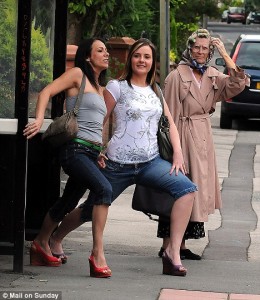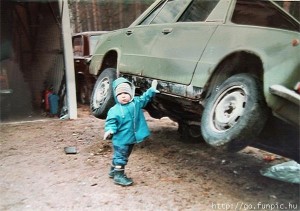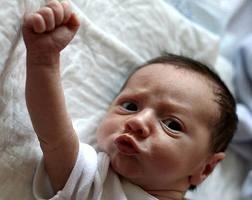Xu - Fake - False
/ The term xu is a key concept which ties together daoyin, the ritual body, trance, and all types of martial arts. The first definition my dictionary gives of xu is “empty” or “hollow” but this is misleading as the term kong is generally used to describe emptiness in martial arts, meditation or ritual.
The term xu is a key concept which ties together daoyin, the ritual body, trance, and all types of martial arts. The first definition my dictionary gives of xu is “empty” or “hollow” but this is misleading as the term kong is generally used to describe emptiness in martial arts, meditation or ritual.The second definition in my dictionary is more helpful, “fake;” interestingly, the fourth definition is “virtual.”
The radical for the character xu, is hu (tiger). When a tiger stalks, he forgets his body, he thinks only of the prey. Xu is the character used by Chinese Medicine in the expression shenxu (kidney depletion). When we go without food or sleep our bodies often become deficient and depleted, we lose fine motor control, the ability to focus, and concern for the flesh.
In the context of internal martial arts, xu is the fruition of the whole body moving as a single liquid unit. Xu is a description of the physicality of an “I can sense what you are doing, you can not sense what I am doing” situation. A body which is xu is unstoppable because it doesn’t apparently respond to resistance.
I know what you are thinking, zombies are xu. That’s right, if zombies could talk they would be like, “Yo, I don’t care if you chop off my arm, I’ll still eat you. Shoot off my leg, no problem, I’m still coming...” I hesitate to say that xu is a form of disassociation because it is not necessarily a psychological problem. However, the first time I bang my body or my leg against the ground teaching daoyin, people wince. They think, “Are you crazy?”
Xu is external martial conditioning. Xu is the result of pounding and slapping the outside of ones body as a way to be comfortable with heavy contact.
It is also what allows self-mortifiers to pierce and pummel themselves. There is a long history in China of using a ritual trance initiation to induce xu. Often it involves a ritual emptying, as in nuo theatrical exorcism where the hun and pö spirits are removed from the performer’s body and placed in jars using talisman and mantras. But it is also a quick way of training troops. During the Boxer Rebellion (1900) each boxer went through an initiation process which made him immune to pain and of course (he believed) bullets.
In trance the mind is totally preoccupied. The boxers would invoke their personal deity and they would become, for instance, the Monkey King. By preoccupying the mind with all the attributes of the Monkey King the individual boxer must have been able to disassociate from any injury to his own body. He may also have been hungry and been entranced by the idea that he was purifying the country of evil Christians.
Other examples of training troops quickly involve group chanting. Qawwali music from Pakistan, for instance, is all about invoking love. It is the idea that while you are butchering your enemy you feel intense love for them, as you send them to god, you also make them one with god. Because you are so focused on love, you disassociate from your own body. Intense anger, revenge, and envy work too. As Laozi says, “When we are possessed by desire, we experience only the yearned for manifest.”
Many spiritual traditions think of xu as a form of transcendence. Putting on my rational 20th Century hat, I’d say that xu is the result of two forces; hormones (probably adrenaline, dopamine, oxytocin, epinephrine) and mental focus.
(While mentally focusing on an idea, a goal, or an object outside the body can create an experience of xu, "focus" is a really bad word choice because the more spatially expansive (capacious) ones awareness is, the more xu the body can become.)
For those who practice internal martial arts xu comes about simply through relaxation. In fact I would tentatively say xu is relaxation. When every sand sized particle that makes up your entire body is relaxed it is xu. (Xu is used in the Chinese character for atom.) A body which is xu does not intentionally respond to resistance. It is heavy, liquid and unified. Actually it does respond to resistance, but it does so in an unconditioned, unconscious, uncontrolled automatic way.
Everywhere I look these days people are abusing the poor word “embodied.” Everything needs to be “embodied” these days, if you want to sell it--it better be embodied with some awesomeness. Exercise, politics, education, shampoo, coffee, even the truth is supposed to be embodied. But I’m telling you people, if you take this ride to the top of the hill, it ends with a totally disembodied experience. But words are misleading, truly internal martial xu should be both embodied and disembodied at the same time. When all the controlling, micro-structural, 'I own this body,' 'this is me,' 'this is me-ness,' voices get turned off what is left is xu. Xu and emptiness (kong), of course.
I’m not exactly describing an ego-free experience here. The ego just becomes bigger, it lifts off of the body and becomes spacial. One experiences a lively, dynamic form of perceptual-motor spacial awareness.
Everyone is at least a little bit xu all the time. And everyone is capable of getting really xu in short order. Most of the drugs you can name off of the top of your head increase ones experience of xu.
What inhibits the experience of xu? Only one thing: Feeling in possession of your own body--believing that what defines you is limited to this empty bag of flesh.

 I really don't know what to do. Paulie Zink has
I really don't know what to do. Paulie Zink has 
 It is a staple of Chinese movement and religious studies that the tongue should be on the roof of the mouth. In Daoist ritual and ritual meditation the tip of the tongue is sometimes used to draw talisman on the roof of the mouth. But in Zouwang (sitting and forgetting) the basic emptiness meditation practice, which is very much like Zen, part of the posture instructions for stillness include putting the tip of the tongue on the roof of the mouth behind the teeth. I’ve also heard people say to put the tongue on the soft pallet. The identical instruction is standard in Tai Chi and other internal martial arts and qigong classes.
It is a staple of Chinese movement and religious studies that the tongue should be on the roof of the mouth. In Daoist ritual and ritual meditation the tip of the tongue is sometimes used to draw talisman on the roof of the mouth. But in Zouwang (sitting and forgetting) the basic emptiness meditation practice, which is very much like Zen, part of the posture instructions for stillness include putting the tip of the tongue on the roof of the mouth behind the teeth. I’ve also heard people say to put the tongue on the soft pallet. The identical instruction is standard in Tai Chi and other internal martial arts and qigong classes. Much of learning in traditional Chinese martial arts involves re-imagining. A subset of learning involves re-naming. The purpose of re-naming is to re-imagine a process or practice you are already familiar with. We could speculate that the imagination has a built in deterioration and mutation mechanism for anything which has become fixed. The imagination requires regular refreshing to function properly.
Much of learning in traditional Chinese martial arts involves re-imagining. A subset of learning involves re-naming. The purpose of re-naming is to re-imagine a process or practice you are already familiar with. We could speculate that the imagination has a built in deterioration and mutation mechanism for anything which has become fixed. The imagination requires regular refreshing to function properly.

 Being baby-like is used as a metaphor to describe the Dao in several key chapters of the Daodejing. I've ventured into this particular play-pen many times before, but each time I see things differently.
Being baby-like is used as a metaphor to describe the Dao in several key chapters of the Daodejing. I've ventured into this particular play-pen many times before, but each time I see things differently. But children often have some difficulty distinguishing what is real from what is imaginary. It's easy to see how this might come about, especially if most of what we think we are "seeing" is actually being organized by our imagination. We usually see ghosts out of the corner of our eyes. Magicians use 'slight of hand' which basically means they get you to focus one way and imagine the other. When someone shouts in a crowd, "He's got a knife!" lots of people will be certain they saw it, even if it never existed.
But children often have some difficulty distinguishing what is real from what is imaginary. It's easy to see how this might come about, especially if most of what we think we are "seeing" is actually being organized by our imagination. We usually see ghosts out of the corner of our eyes. Magicians use 'slight of hand' which basically means they get you to focus one way and imagine the other. When someone shouts in a crowd, "He's got a knife!" lots of people will be certain they saw it, even if it never existed. The paper was sent to me because I told someone I thought the idea of reflexes was a bit flimsy. The paper offers evidence to counter the idea that babies have reflexes. The "rooting" reflex used by babies to find their mothers breast seems to turn off after they have eaten! And the "sucking" reflex is very dynamic. Babies adjust how much they are sucking moment to moment depending on how much milk is available. They also change their sucking patterns in order to get their mother's to vocalize. In other words, babies are in control!
The paper was sent to me because I told someone I thought the idea of reflexes was a bit flimsy. The paper offers evidence to counter the idea that babies have reflexes. The "rooting" reflex used by babies to find their mothers breast seems to turn off after they have eaten! And the "sucking" reflex is very dynamic. Babies adjust how much they are sucking moment to moment depending on how much milk is available. They also change their sucking patterns in order to get their mother's to vocalize. In other words, babies are in control! One of the things I love about teaching beginners is that they ask the most basic and obvious questions, and I get stumped.
One of the things I love about teaching beginners is that they ask the most basic and obvious questions, and I get stumped.
 And thus I have a theory.
And thus I have a theory. Can we move our body unconsciously? If I am not conscious of a movement, how can I be its cause? On the other hand, how do we know that so called conscious movement is really conscious? Maybe conscious movement is actually unconscious movement observed and then a split second later justified? Maybe conscious movement is actually unconscious movement which we just happen to have planned in advance? Or put another way, maybe all movement is unconscious, but some movement has a kind of mental tension surrounding it, attempting to guide it and control it.
Can we move our body unconsciously? If I am not conscious of a movement, how can I be its cause? On the other hand, how do we know that so called conscious movement is really conscious? Maybe conscious movement is actually unconscious movement observed and then a split second later justified? Maybe conscious movement is actually unconscious movement which we just happen to have planned in advance? Or put another way, maybe all movement is unconscious, but some movement has a kind of mental tension surrounding it, attempting to guide it and control it. This is where I start getting excited. I've begun seeing unconscious power in other people. I can see it in people waiting for the bus. This natural power is in my opinion available all the time when people are relaxed. I see the unconscious power but I also see two forces inhibiting it.
This is where I start getting excited. I've begun seeing unconscious power in other people. I can see it in people waiting for the bus. This natural power is in my opinion available all the time when people are relaxed. I see the unconscious power but I also see two forces inhibiting it. Just as a side note here, my ability to see this unconscious power has developed in conjunction with my own ability to express unconscious power. But I also believe that my own mental training was for a long time inhibiting my ability to see unconscious power in others. The type of analytic anatomic physiological thinking which allows us to see individual body structures like muscles, may be replacing what is actually happening with a mental proxy. And thus, by eventually dropping those complex ideas about what we are, suddenly something that was always there appears.
Just as a side note here, my ability to see this unconscious power has developed in conjunction with my own ability to express unconscious power. But I also believe that my own mental training was for a long time inhibiting my ability to see unconscious power in others. The type of analytic anatomic physiological thinking which allows us to see individual body structures like muscles, may be replacing what is actually happening with a mental proxy. And thus, by eventually dropping those complex ideas about what we are, suddenly something that was always there appears.